Transitioning to an Plant Based Diet
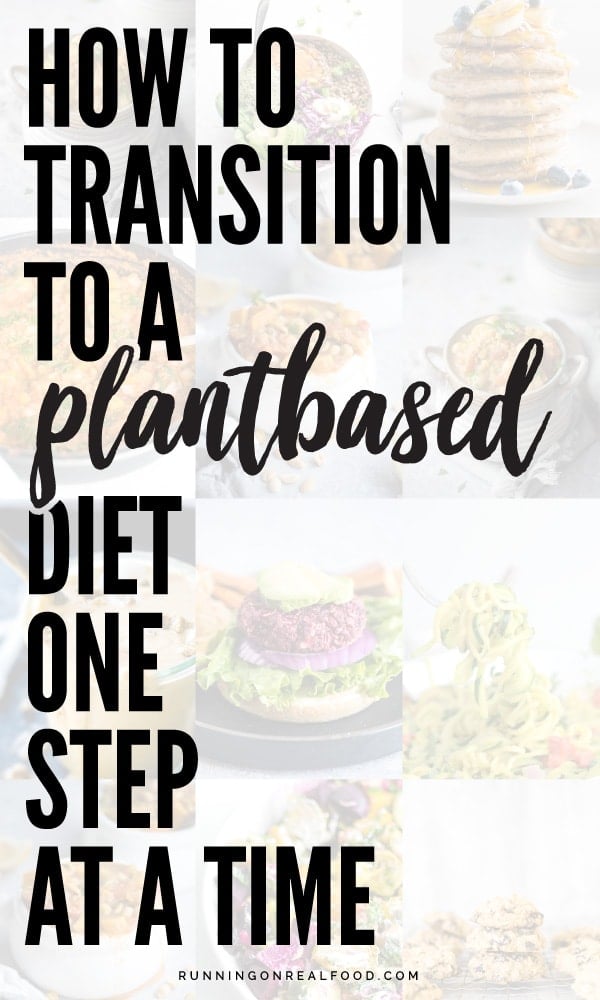
I get a lot of questions about how to transition to a plant-based diet. I know it can be overwhelming when you're just starting out but I want to assure you that you can do this. It might be hard at first and most likely you'll stumble along the way but all that matters is that you keep trying.
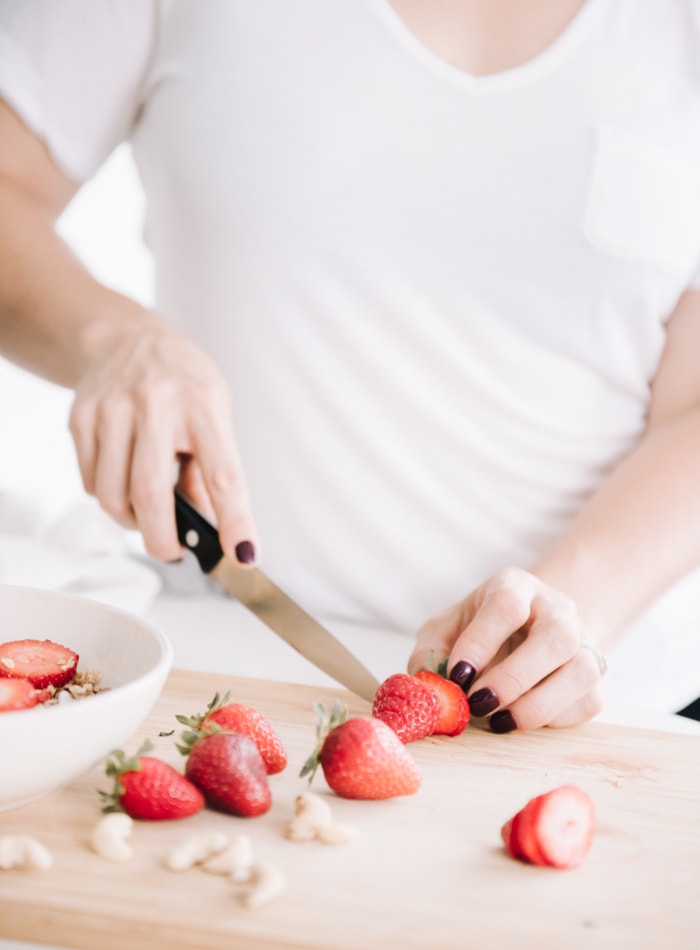
I've been eating this way for so long, sometimes I forget what it's like to come from the opposite end of the spectrum. If you've been eating a heavily animal-based diet, the transition to a plant-based diet might seem impossible. You might be thinking what could one possibly eat if you don't eat meat, eggs and dairy? Well, don't you worry. I'm here to assure that not only is there plenty of nourishing, delicious foods to eat but they can be prepared as fun and creative plant-based alternatives to all your favourite foods.
Change your Mindset
It's important to approach this new chapter with an open mind and a positive mindset. Try to think in terms of what you'll begaining from eating a plant-based diet instead of what you'll be missing out on. Maintaining your new diet shouldn't be about willpower, struggle or deprivation. In fact, once you learn more about plant-based eating, you'll see that don't have to give anything up.
Once you're familiar with the ins and outs of vegan alternatives to pizza, cookies, muffins, chocolate and sandwiches, you'll have no problem learning to love the plant-based lifestyle and how it makes you feel.
Know your Reason Why
It's important to get really clear on your reason for embarking on a wfpb (whole food plant-based) diet. If it's a big lifestyle change for you, it's going to get tough at times and having a clear reason why can help you stick to your goals.
Reasons for eating plant-based could include:
- preventing disease
- managing blood sugar
- lowering cholesterol
- living longer
- love for animals
- losing weight
- reducing your environmental impact
There are a lot of great reasons to eat a plant-based diet. What one speaks to you?
Find a reason that inspires and excites you and get really clear on it. Write down your why and stick it on your fridge or bathroom mirror. Keep that reason front and center to help you stay focused.
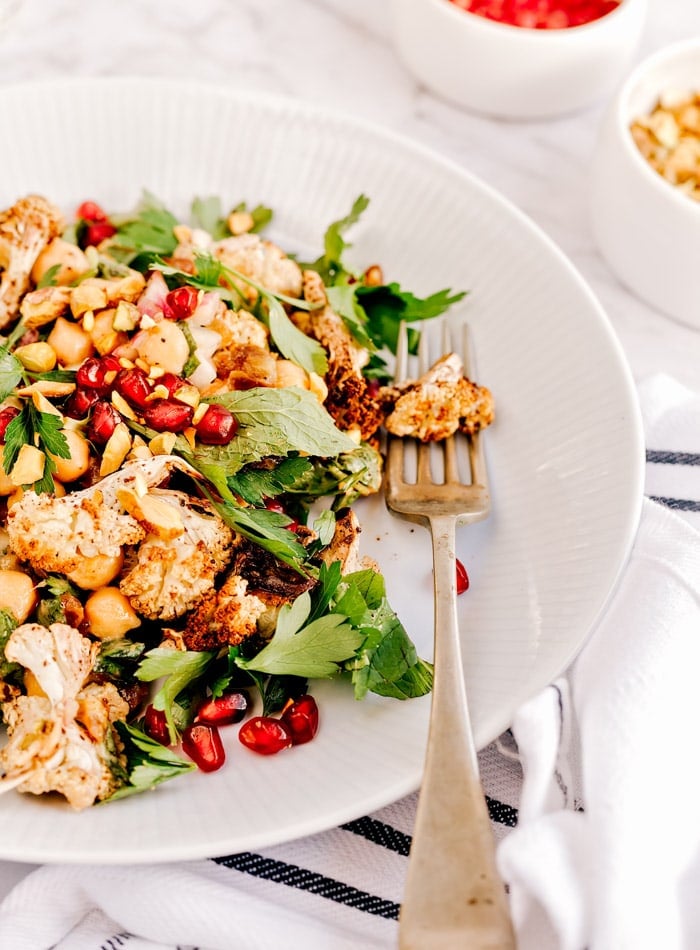
What is a Whole Food Plant-Based Diet?
A wfpb diet means eating whole, unrefined or minimally processed plant foods. It's based on fruits, vegetables, tubers, whole grains, legumes, nuts and seeds. Being plant-based, it excludes meat, dairy products, eggs and refined grains, sugars and oil.
What's the Difference Between Plant-Based and Vegan?
Let's talk a little bit about the difference between vegan and plant-based. While they're very similar, you may be vegan but not eat a whole food plant-based diet or you may eat a plant-based diet but not necessarily be vegan.
Veganism is the practice of minimizing harm to all animals by abstaining from animal products such as meat, fish, dairy, eggs, honey, gelatin, lanolin, wool, fur, silk, suede, and leather. It is more than a diet, it is a way of living that seeks to exclude all forms of exploitation and cruelty to animals for food, clothing or any other purpose.
To technically be vegan, it would mean no down comforters, no wool socks, no honey, no gelatin-based candy and of course, no eating dairy, eggs, meat or fish.
A plant-based diet on the other hand, is just about the food. You can pretty much guess what it's all about from the name. If you eat a plant-based diet you may not necessarily be vegan and you might have other reasons for eating that way than just compassion.
It can be compassion and health
For myself, it started with compassion and led to health. As I learned about modern day meat production, it was clear to me that I couldn't be a part of it. From there, the more I educated myself on health and nutrition, the deeper my love for plant-based eating grew.
I eat a plant-based diet and do my best to reduce harm to animals in all areas of my life. I've said it before and I'll say it again, do the best you can with what you have at any given time and don't beat yourself up if you stumble.
I personally like the idea of reductionism or doing your best to reduce harm. Becoming a strict vegan isn't going to work for some people and I think a mostly plant-based diet is better than nothing at all. Listen to your body and trust your gut, you'll find what's right for you.
What's the Difference Between a Vegan and Vegetarian Diet?
Vegetarians do not eat animals such as cows, pigs or fish but still include animal products such as dairy and eggs in their diet. Vegans do not eat or use any animal products. That means no meat, fish, eggs or dairy.
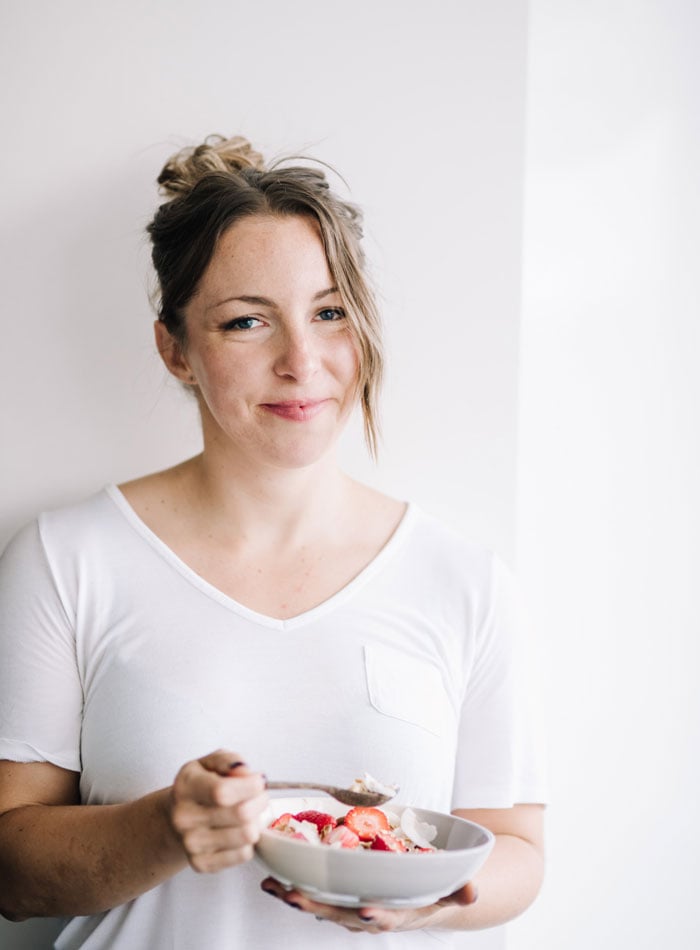
Plant-Based vs Whole Food Plant-Based
A plant-based or vegan diet could technically be made up of processed food, sugars, refined grains and unhealthy fats, that's where whole food plant-based comes in. A whole food plant-based aims to minimize or eliminate processed foods and stick to foods as close to their natural state as possible.
Why Whole Food Plant-Based?
By eating unrefined foods we are able to take advantage of all the macro and micronutrients we need but none of the junk we don't. Reducing refined sugars, grains and oils is important in reducing inflammation.
More Reading: Anti-Inflammatory Living to Heal Inflammation Naturally
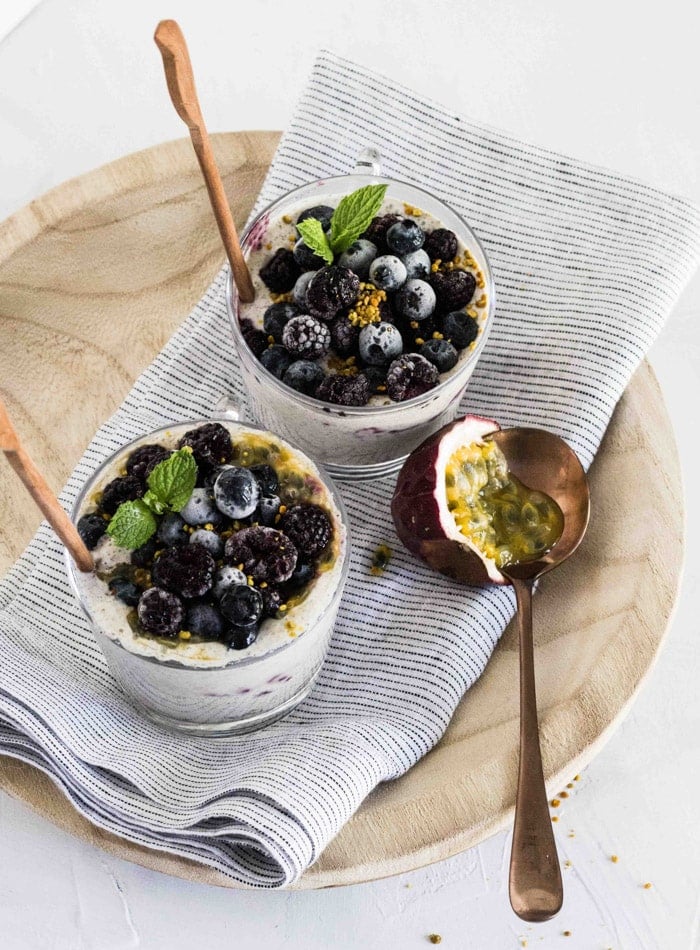
Tips Before Starting Your Plant-Based Journey
There are a few aspects of healthy eating that I find to be key to success. Review these tips before you get started.
Prepare your own food
This is probably the most important aspect of eating plant-based. Unless you have unlimited funds for food and live somewhere with tons of vegan restaurants, preparing your own food at home is absolutely key to making a whole food plant-based diet work. So it's time to get in the kitchen! There's no need to spend hours cooking, creating heathy plant-based meals can be quick and simple. You might find these posts helpful in getting started:
- 3-Day Whole Food Plant-Based Meal Plan
- Easy Vegan Dinner Recipes
- Healthy Breakfast Smoothie Recipes
- Easy Healthy Vegan Breakfast Recipes
- No Recipe Required: Easy Vegan Meal Ideas
- Vegan Grocery List
- One-Week Vegan Meal Plan
Meal plan and food prep
I recommend doing at least some food prep every week. It will make your life so much easier, save you money and prevent food waste. I would also recommend sitting down on Sundays and completing a meal plan and grocery list. Planning and preparation and key to success.
Once you have a plan for the week and a complete grocery list, it's time to shop and then get in the kitchen to do some food prep. This could be a simple as pre-washing and chopping all your veggies, or as thorough as batch cooking all your meals for the week. Experiment and see what works for you.
Stock your pantry
Having a well-stocked pantry of essentials will simplify your shopping lists and allow you to create healthy and delicious meals on the fly. Check out my post on How to Stock a Vegan Pantry to get started. You may also find my vegan grocery list helpful, grab a copy below.
[thrive_leads id='21474′]
Educate yourself
This step is huge too. More more you learn about health, nutrition, animal welfare and agriculture, the easier making plant-based choices becomes. I would recommend checking out my list of plant-based diet resources to start familiarizing yourself with the hows and whys of a plant-based diet. I would also recommend reading my post on vegan protein sources and my vegan nutrition guide. I've also listed my favorite podcasts here.
Pick up some new cookbooks
I like using my favourite vegan cookbooks for ideas when I'm doing my weekly meal planning. I often take cookbooks out of the library and if there's one I really like, I'll buy a copy for home. You can find some of my favourite cookbooks here.
You can also use Pinterest, Instagram and vegan food blogs to find recipes and ideas. I'd recommend following some of the incredible plant-based Instagram accounts out there to stay inspired. If you go to my Instagram @runningonrealfood, you can see who I follow and find some wonderfully inspiriting and helpful accounts.
Progress not perfection
This is so important and I see it time and time again, people have one mishap and then just give up completely. This is backward thinking. It's like dropping your cell phone and then smashing it completely, or getting a hole in one tire and replacing all four with new ones. Stumbling is no big deal, the key is to pick yourself back up and keep moving forward.
Never throw away all your hard work just because of one small failure. Failure is how we learn and grow. Consistency is far more important than perfection, in fact, perfection doesn't exist at all so be kind to yourself, forgive yourself, recognize progress big or small and just keep going. We're all human.
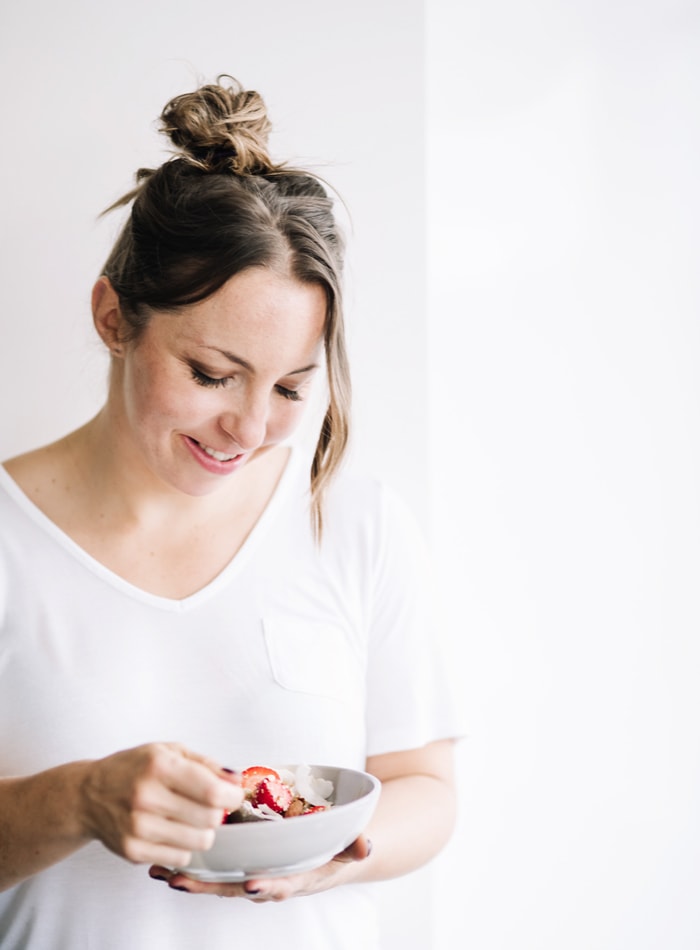
How to Transition to a Plant-Based Diet
Transitioning to a plant-based diet doesn't have to be done cold turkey. Your transition might take 2 weeks and it might take a year, so don't expect perfection or to get there overnight. Change can be difficult and it can be emotionally and socially challenging to break free from the norm. Depending on where you're at in your healthy eating journey, you may be able to make the switch right away but for those of you with a bigger change to make, a slow transition might be the way to go.
Transitioning in Stages
If you're currently eating closer to the Standard American Diet, working in stages towards a completely plant-based diet is probably your best bet for success. One step at a time. This will make it realistic and sustainable as you're bound to stumble along the way until you find your footing and eating plant-based starts to come naturally.
There's no need to feel pressured to get to a fully plant-based diet overnight. The journey is all part of the fun, so if you can learn to love the process you'll be much more likely to succeed in the long term.
There's Power in Small Change
I know you're excited to get started but going slowly gives you a chance to adjust and improve your plant-based cooking, knowledge and even your taste buds. There is power in small change. Don't let yourself completely off the hook though, be honest with yourself and push yourself to get outside of your comfort zone because that's where the good stuff is.
This step by step plan was written with a beginner in mind. If you're already familiar with plant-based eating but still eating some meat, skip ahead and start working on eliminating meat completely and then moving on to dairy and eggs. Alternatively, you could start eliminating dairy and then move on to meat and eggs.
If you're already vegetarian but interested in going completely plant-based, it's time to start focusing on removing dairy and finally eggs.
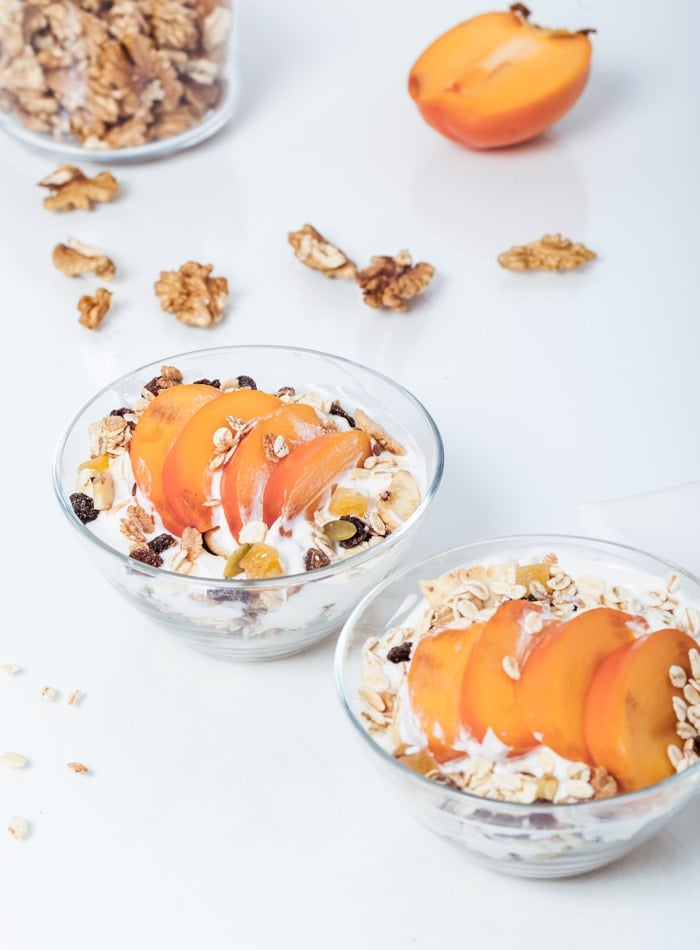
Step 1. Start reducing your meat consumption.
If you're brand new to all this, start going meatless once per week. Meatless Mondays is a popular movement so that could be a good day to start with. I would recommend incorporating Meatless Mondays into your routine for 2-4 weeks before moving on.
If you currently eat eggs, fish and dairy, don't worry about that yet, just focus on incorporating more plant food into your diet and eating less meat. Instead of making meat the star of your dishes, try making a bean, legume or tofu-based dish or making that side salad the main course.
1a. Continue Your Education
During this month, it's a great time to continue to educate yourself on the merits of a plant-based diet. I would highly recommend listening to the following podcast episodes to help you on this journey.
Best Plant-Based Nutrition Episodes
- Rich Roll Podcast Episode #50 with Dr. Garth Davis, Weight Loss Surgeon Turned Plant-Powered Crusader
- Rich Roll Podcast Episode #150 with Dr. Garth Davis, Our Misplaced Obsession with Protein: High Fat, Low Carb Diets, Bad Science and How to Separate Nutritional Fact from Popular Science
- Rich Roll Podcast Episode #252 with Dr. Neal Barnard ,The Power of Nutrition to Prevent and Reverse Disease
- Rich Roll Podcast Episode #2 with Dr. Neal Barnard, On Breaking the Dairy Addiction
- Rich Roll Podcast Episode #192 with Robynne Chutkan, MD, Live Dirty, Eat Clean, Everything Microbiome
- Rich Roll Podcast Episode #79 with T Colin Campbell, How Plant-Based Nutrition Can Prevent and Reverse Disease
- Rich Roll Podcast Episode #7 with Michael Greger, MD,Omega-3's, Antioxidant Impact on Exercise Recovery and the How's and Why's of Protein Intake
- Rich Roll Podcast Episode #199 with Michael Greger, MD, How Not to Die
- Rich Roll Podcast Episode #28 with RD Andy Bellatti, Taking a Stand on Real Food
- Rich Roll Podcast Episode $44 with Doctor Joel Kahn, How a Plant-Based Diet can Prevent and Reverse Heart Disease
Animal Welfare and Vegan Athletes Episodes
That's a great place to start learning more about plant-based nutrition. If you're interested in animal welfare, I'd recommend this one with Gene Baur. T
There are also plenty of episodes with plant-based athletes so if you're wondering how eating vegan and performing at a high level works you can check out Mac Danzig, Patrick Bauboumian, Timothy Shieff, Landon Casill, Mark Miller, Lelani Munter, Griff Whalen and more.
There are a ton of other excellent conversations on other topics that are worth listening too and you can find them all here.
More Reading: Best Health, Wellness and Self-Development Podcasts
Must-Read Plant-Based Diet Books
- How Not to Die
- Proteinaholic: How Our Obsession with Meat Is Killing Us and What We Can Do About It
- The Cheese Trap: How Breaking a Surprising Addiction Will Help You Lose Weight, Gain Energy, and Get Healthy
- Dr. Neal Barnard's Program for Reversing Diabetes
- The China Study
- Whole: Re-Thinking the Science of Nutrition
- Eat to Live: The Amazing Nutrient-Rich Program for Fast and Sustained Weight Loss
- Prevent and Reverse Heart Disease
I've also got a complete list of all the plant-based diet resources here.
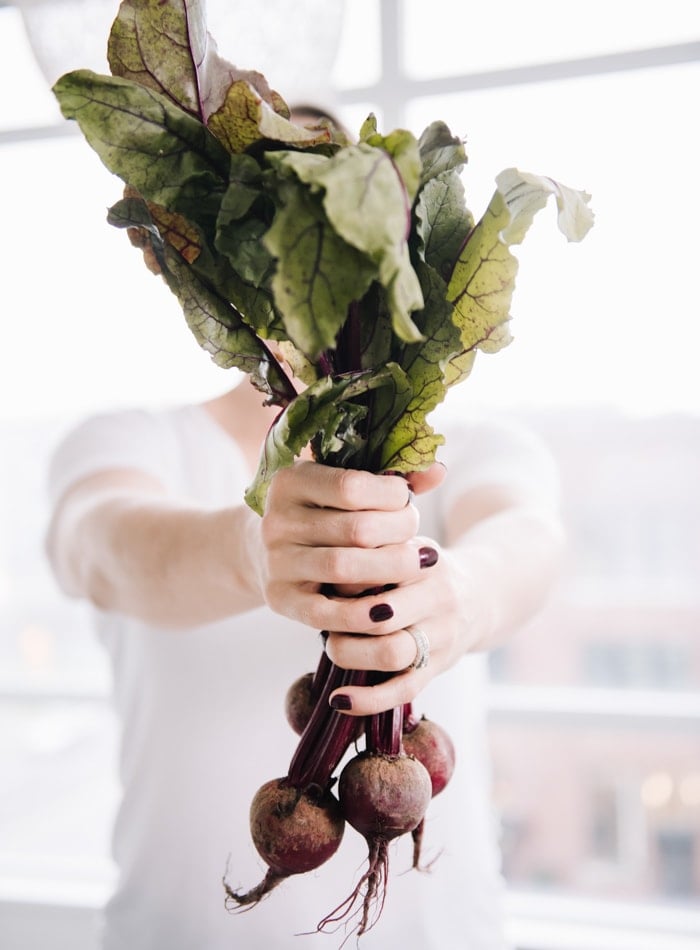
Start Adding More Plants
While you're transitioning in the first month, not only do you want to start eliminating meat but it's also time to start adding more plant-based foods to your diet. For example, if you normally eat scramble eggs for breakfast, try adding spinach, mushrooms and onions to the mix.
If you're eating soup, stir in some chickpeas and kale, if you're making a sandwich, try adding avocado and sprouts. By adding plant-based foods, you'll also be adding tons of healthy fibre and nutrients plus the more plant foods you eat, the less you'll need animal products and processed foods.
During this month you can also focus on trying new foods and recipes and start developing on your weekly food prep and planning habit.
Try Plant-Based Mornings, Afternoons or Evenings
Another great way to start reducing your meat intake is to just eat less meat on a daily basis. You could start experimenting with eating plant-based breakfasts, then move on to creating plant-based lunches and finally dinners.
Plant-Based Breakfast and Dinner Ideas
- Easy Healthy Vegan Breakfast Recipes
- Healthy Breakfast Smoothie Recipes
- Easy Vegan Dinner Recipes
- 28 Healthy Vegan Salad Recipes
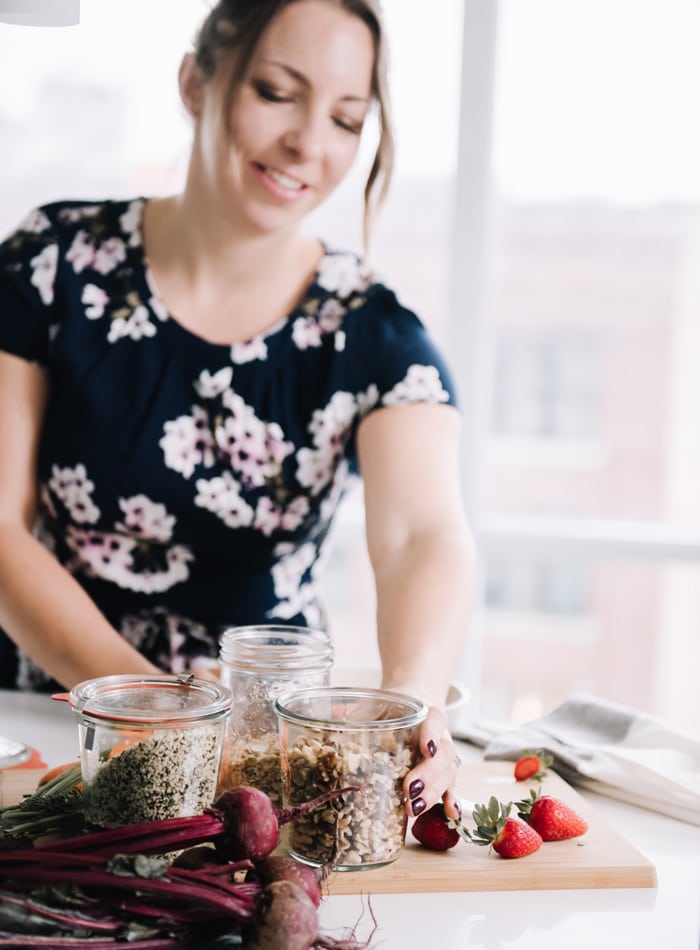
Step 2. Reduce meat consumption down to once a week.
Now that you've got the hang of what one day of plant-based eating is like, it's time to start reducing your meat consumption down day by day until you're only eating it about once a week.
You can stay in this second stage for another month or two until you're ready to cut meat down to once every couple of weeks and then once a month.
Some of my favourite ways to replace meat in recipes are:
- cauliflower rice to replace beef in things like chili
- walnuts and/or lentils to make taco meat or anywhere else you'd use ground beef
- jackfruit to make pulled pork
- portobello mushrooms to make steak strips for fajitas, or to use as burger patties
- homemade veggie burgers
- eggplant, tofu or coconut to make bacon
- seitan, tempeh or tofu as meat substitutes
- Field Roast Vegan Sausages
Step 3. Eliminate meat from your diet.
It's time! You've been moving towards a plant-based diet for at least a month now. You're familiar with how to create a meal plan, food prep and create a full day worth of plant-based meals. So what are you waiting for? At this time, it can help to review your why, check back in with some plant-based nutrition books and podcasts to help keep those big reasons in front of mind. You got this!
If you've been eating fish, it's now time to reduce and then eliminate that as well.
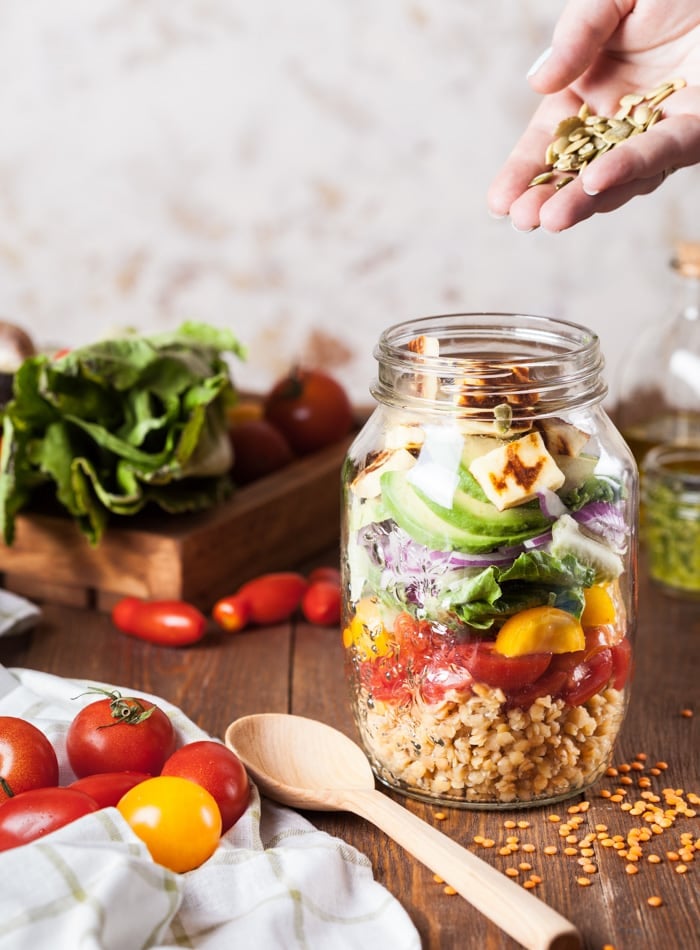
Step 4. Start reducing your dairy intake.
A lot of people struggle with cutting out dairy but once you get the hang of it, it's easier than you think. Head over and read my post on How to Replace Dairy in Your Diet to get started.
Replace Cow's Milk First
Milk is the easiest. There are a ton of plant-based milks on the market today and and making your own is easy. Dairy-free milks can be used as a direct replacement for dairy milk and it's an easy switch to make. Do it now.
Then the Yogurt
Yogurt is easy too. You can make your own cashew, almond or coconut yogurt or go for one of the many wonderful store-bought options such as So Delicious or Yoso.
Then the Cheese
Next is cheese. This is probably the hardest for most people since it's hard to replicate the way cheese melts however, at some point you just have to go for it. You will get used to living without cheese. I would suggest listening to this podcast episode: Rich Roll Podcast Episode #2 with Dr. Neal Barnard, On Breaking the Dairy Addiction.
There are also a ton of incredible vegan cheeses on the market today. Chao, Daiya and Earth Balance are my favourite larger brands. You can also make your own vegan cheeses, check out This Cheese is Nuts by Julie Piatt if you're intersted in homemade plant-based cheeses.
Next is things like cream, cheese sauce, sour cream and whipped cream and these are all easy to replace with homemade or store-bought vegan alternatives. Get friendly with ingredients like soft tofu, cashews and coconut milk and you'll be able to create your own version of these traditionally dairy-based products.
Spend a few weeks experimenting with plant-based options to replace dairy. Swap out your dairy-milk for almond or cashew, get familiar with nutritional yeast, try making vegan sour cream with cashews or tofu, try tofu ricotta, try making vegan coffee creamer, replace mayonnaise with vegan mayo or avocado and try a few store-bought vegan cheeses if you want to make a treat like pizza or nachos.
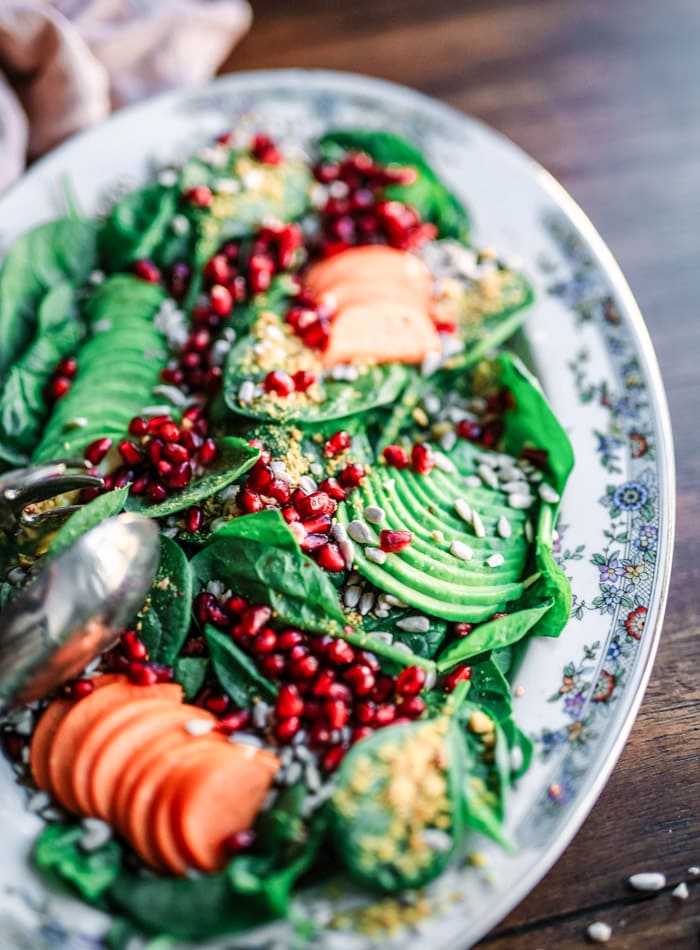
Step 5. Eliminate dairy from your diet.
Okay, so you've been spending some time familiarizing yourself with vegan alternatives to dairy. It's time to cut it out completely. I'd take a week or two here adjusting to living dairy-free.
What About Social Events and Holidays?
Social events in a traditionally animal product-heavy culture can be tough. Especially when it comes to dairy since it's in everything. Here are tips to help you navigate social gatherings.
- F ocus on more than the food.I struggled here for a long time. What would I eat? I didn't want to be that person or make a big deal or have people saying "oh, you can't eat that." Well, actually I can eat it, I just choose not too and no one should ever make you feel bad for your dietary choices, nor should you have to eat something you don't want to. Now, at social events and holidays, I try to focus on other things like just being present with people I'm with. It's also a great time to drink lots of water and sip on tea.
- Bring food to share. This is my go-to. I almost always show up with a vegan dessert or appetizer to share that way I can eat something and amaze people with delicious vegan food.
- Ask the host. If you're going to a dinner party and are worried there won't be a veggie option, it can't hurt to ask or suggest bringing a dish to contribute. I find in this day and age, most people are totally understanding and accommodating.
- Reach for the animal-free snacks. Reach for veggies, nuts, hummus, guacamole, chips and any other plant-based snacks you can find.
- Path of least resistance. Wanting to fit can be a struggle for plant-based eaters, ethical vegans, or anyone trying to eat heathy in an environment that's doesn't support their goals. If people start questioning me, I'll engage them if they're interested in a positive way and if not, I'll make a joke and typically just change the subject. You'll get more comfortable with this over time.
- Review your motivation. It can help to go back to your why and remember the reason you started all this to begin with.
- Eat a big meal before you go. This one really helps me. Unless I'm going to a dinner party, I prefer to eat a large meal before social events. If I'm full there's no need to worry about what's at the dessert table.
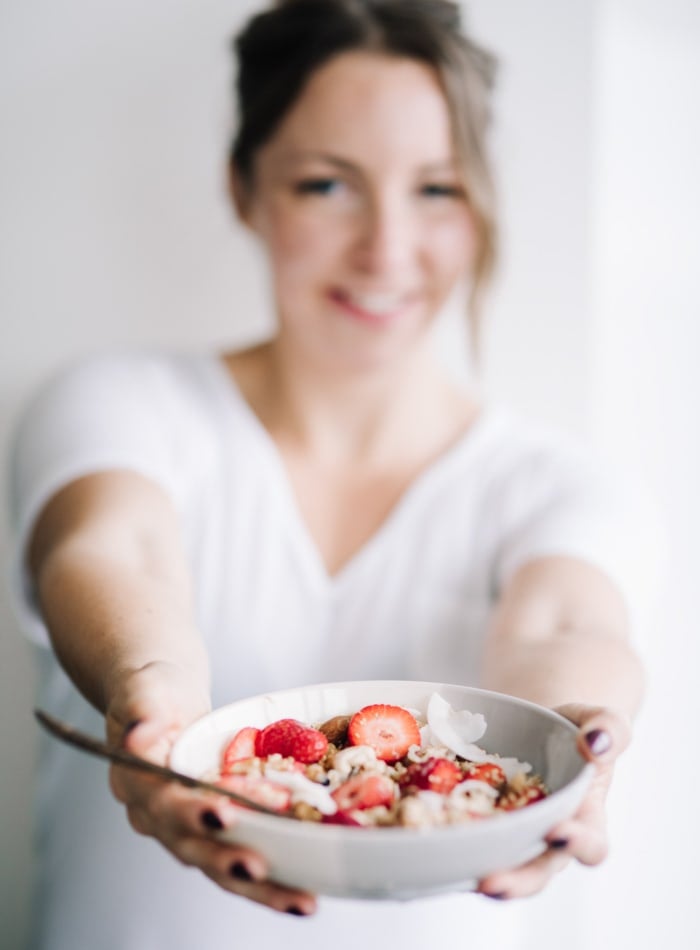
Step 6. Start reducing your egg intake.
I know some people are reliant on eggs, especially at breakfast time but hopefully you've already been experimenting with plant-based breakfasts.
For a refresher, head over and check out:
- Easy Healthy Vegan Breakfast Recipes
- Healthy Breakfast Smoothies
- Anti-Inflammatory Breakfasts.
If you normally eat eggs at breakfast time, start reducing that day by day and incorporating new breakfast options such as:
I have a full list of my favourite self-development books here.
- overnight oats
- sweet potato breakfast bowls
- tofu scramble
- veggie sweet potato breakfast burrito
- healthy breakfast burritos
- avocado toast
- toast with almond butter and jam
- grain-free breakfast bowl
- chia pudding
- breakfast bowl with chipotle sauce
- chocolate avocado smoothie
- blueberry hemp smoothie
- peanut butter pumpkin smoothie
- tempeh bacon breakfast bowls
- savory vegan breakfast bowls
What about eggs in baking?
Replacing eggs in baking is easy. You can use flax eggs, chia eggs, aquafaba, banana, soft tofu, applesauce, psyllium fiber and more. Search in Google for how to replace eggs in baking and you'll find plenty of excellent resources for the ins and outs of vegan baking.
Here are some of my favourite vegan baking recipes:
- Vegan Blueberry Muffins
- Vegan Peanut Butter Oatmeal Chocolate Chip Cookies
- Vegan Chocolate Chip Banana Muffins
- Vegan Tahini Date Cookies
- Flourless Peanut Butter Banana Oatmeal Cookies
I don't do a lot of baking at Running on Real Food, I would recommend checking out my list of the best vegan blogs to find more baking pros like The Vegan 8. You can also do incredible things without baking, check out my list of the best blogs for raw vegan desserts to learn more.
Step 7. Eliminate eggs from your diet.
Okay, the final step. Cutting out eggs. You've already cut out meat, fish and dairy and you should be almost completely plant-based. You've spent the last few weeks trying vegan breakfast options and replacing eggs in any baking you might have done, so it's time to take that last step and go for it.
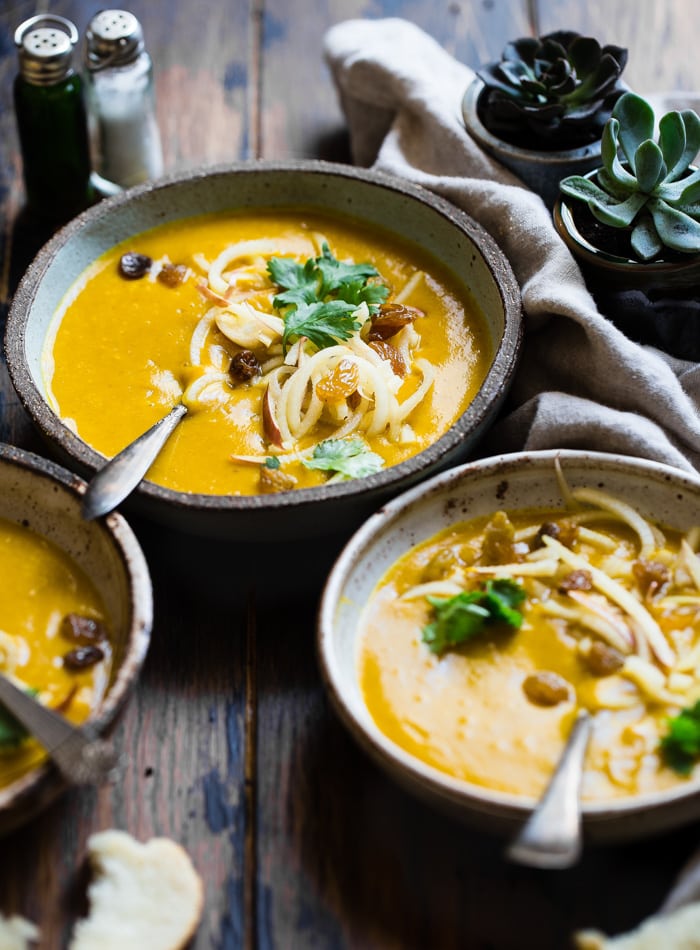
Step 9. Repeat for life!
Depending on how your journey went, it may have been a week, a month or 6 months since you started. Either way, at this point, you should be completely plant-based! Congratulations!
Now, repeat that for life.
Continue exploring new foods, cuisines and recipes. Keep learning, go easy on yourself and just enjoy this amazing, plant-based lifestyle.
Do I have to eat plant-based forever?
Do you have to be 100% plant-based for you entire life? That's up to you but the short answer is no, of course not. It's your body, your health and your decision, so do what's right for you and just remember that it's the little things we do consistently over time that matter the most.
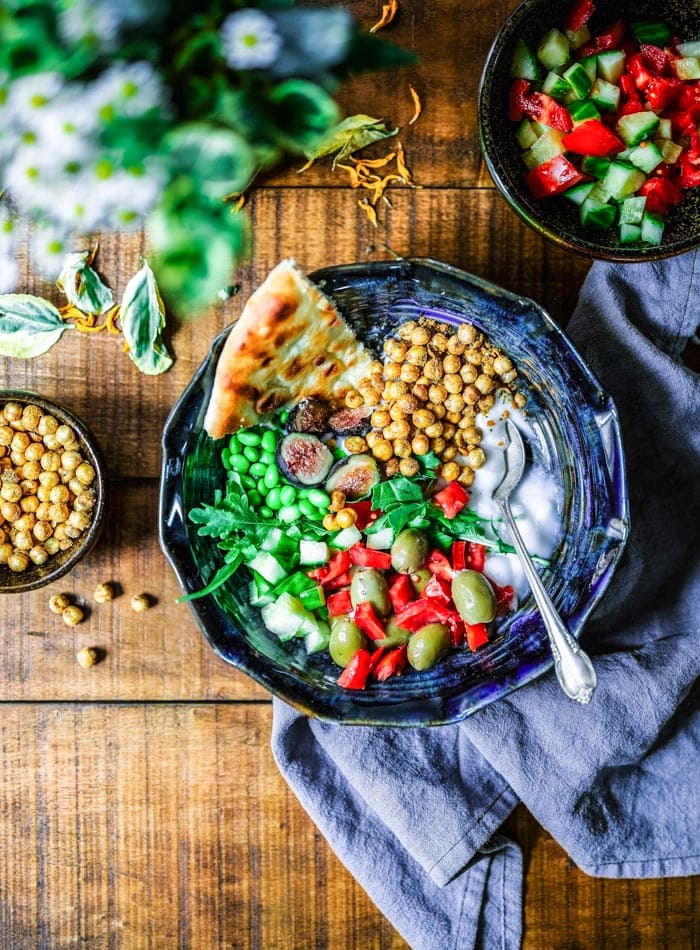
Develop Supporting Healthy Habits
Health is more than just what we eat. Stress management, exercise and fun all play a roll. Now is a good time to start incorporating more healthy habits that will support your nutrition plan. These aspects of healthy living can be integrated into your routine at any time. They seem simple but they all play a roll in holistic living so you can feel your best and live life to the fullest.
- Drink more water. Hydration is just as important as nutrition. Drink a lot of water, starting with a big glass first thing in the morning and then continuing throughout the day, it's as simple as that.
- Meditate . Study after study has shown the positive benefit of meditation. This can be as simple as 5 minutes of deep breathing with your eyes closed. Anything to just slow down for a moment and notice what's happening inside and around you. I use the Insight Timer and Calm apps to meditate, Headspace is also very popular.
- Exercise . Move a lot. You'll feel better, look better, live longer, have more energy, sleep better…the list goes on. It doesn't mean you have to go crazy in the gym every day or run mile after mile but it is important to break a sweat and stay active on a daily basis.
- Journal. Journalling is a great way to de-stress, reduce anxiety, focus on goals, create a strong vision for your life and just a good way to chill and become more aware of how you're feeling.
- Read. It's been said the fastest way to improve your life is to read at least 30 minutes a day.
- Spend time in nature.
- Try new things. Keep your brain sharp by challenging it with new experiences on a consistent basis.
- Improve your sleep. Read my posts on Sleeping Well: Tips for Better Sleep and How to Optimize Your Sleep and start making quality sleep a priority.
- Play, laugh and have fun. Laughter really is the best medicine. Play with your kids, go to a comedy show, play games and find ways to bring more play into your days.
- Create connections. Whether it's spending screen-free time with family and friend to getting out and connecting with your community. Human connection and a sense of belonging have been shown to be a key contributor to happiness and longevity.
Personal Growth Books
Remember to keep up that reading and podcast habit to continue expanding your mind. In addition to going dairy-free, this month you could also focus on healthy supporting habits, such as reading. Here are some of my favourite self-development books:
- The Subtle Art of Not Giving a F*ck
- The Greatness Guide
- The Monk Who Sold His Ferrari
- The Gifts of Imperfection
- Live Your Best Life
- Dark Side of the Light Chasers
- Mindset
- Wherever You Go, There You Are
- Radical Acceptance
- The Untethered Soul
- A Return to Love

Plant-Based Diet FAQ
How do I get protein eating plant-based?
If you're eating a whole food, plant-based diet there's no need to worry about protein. The best plant-based sources of protein include nuts, seeds, hemp seeds, beans, lentils, tofu, tempeh, edamame, seitan, spirulina, quinoa and nutritional yeast. Even fruits and vegetables contain protein.
Read my post on the best vegan protein sources for more options.
If you want to know how much protein you're getting, track what you're eating using My Fitness Pal for a few weeks to determine where you might need to make adjustments.
[thrive_leads id='22697′]
How do I get Vitamin B12?
I am not a doctor but I do recommend supplementing B12 if you eat a plant-based diet. I use a sublingual B12 spray however you can also get enough through fortified foods such as nutritional yeast, cereals and store-bought plant milks.
Read my post on vegan nutrition for more info.
How do I get calcium and iron?
Aside from B12, whole, plant-based foods contain allthe essential nutrients you'll need. Make sure you're eating a wide range of plant foods to cover all your bases.
Plant-based sources of iron include lentils, soybeans, tofu, quinoa, oatmeal, fortified non-dairy milk, pumpkin seeds, sunflower seeds, sesame seeds, swiss chard, collard greens and molasses. Plant-based sources of calcium include fortified non-dairy milk, tofu, soybeans, bok choy, collard greens, broccoli, kale, mustard greens, figs, tahini (sesame) and okra.
Those are the main sources of iron and calcium but many other plant foods contain smaller amounts of these essential minerals. Eat lots of plants, in all colours of the rainbow and you should be good. If you're concerned at all, work with a doctor, nutritionist or dietician to nail down any deficiencies you might be experiencing.
More on calcium and iron in my vegan nutrition guide. The daily nutrition guide below is also helpful.
[thrive_leads id='23191′]
What if you're on a limited budget?
Eating plant-based is not expensive. Meat, eggs and dairy are far more expensive than any plant-foods are. Read my post on How to Eat Healthy on a Budget for some tips on how to make it work.
How do I replace dairy in my diet?
Dairy-free living is a lot easier than you might think. First, I'd recommend researching conventional dairy farming, reading The Cheese Trap and listening to these episodes of the Rich Roll podcast: Neil Barnard on Breaking the Dairy Addiction, Julia Piatt on Ditching Dairy and the rest of the episodes I listed at the beginning of this post.
As you transition, you can use dairy alternatives such as vegan cheeses, sour cream and milk. As you get more familiar with plant-based eating you'll find you don't need cheese and other dairy products and can easily replace them with whole foods such as avocado, tahini, cashews and tofu. Read my post on how to replace dairy in your diet for more into.
What does a plant-based meal plan look like?
Check out my 3-day whole food plant-based meal plan and one-week vegan meal plan. You can also sign up for my 3-day plant-based challenge here.
Creating a day's worth of plant-based meals and snacks is fun, delicious, healthy and easy once you get the hang of it.
Whole food plant-based food groups include legumes (include soy and soy products), whole grains such as quinoa, oats and brown rice, whole grain products such as lightly processed breads and pasta, nuts, seeds, vegetables and fruits.
One day might look something like this:
Breakfast – either a big veggie hash with sweet potato and tofu scramble, oatmeal or a big, healthy breakfast smoothie (more breakfast ideas here)
Lunch – healthy soup and sandwich, meal-sized healthy salad, rice and veggies, veggie wrap with chickpeas, stir-fry
Dinner – whole grain pasta with veggies, zucchini noodles, curry, healthy stew, lentil dahl (more dinner ideas here), healthy casserole
Snacks throughout the day, if needed – handful of nuts and a piece of fruit, chia pudding, small smoothie, veggies and hummus, homemade energy bars
Start Your Journey Today
I hope that helped clear some things up so you can get started on your plant-based journey. Remember, there is power in small change. Take things one day, one step, one meal at a time if you have to and watch those small steps compound into big changes.
Health is a lifelong journey. Start now, don't give up, you got this!
If you need more help figuring out what to eat, please come over and join my private Facebook. I share daily meal plans, recipes and tons of info on nutrition and holistic living.
See you there! Click here to join.
Got a pressing question? Leave me a comment down below and I'd be happy to answer it.
Transitioning to an Plant Based Diet
Source: https://runningonrealfood.com/how-to-transition-to-a-plant-based-diet/